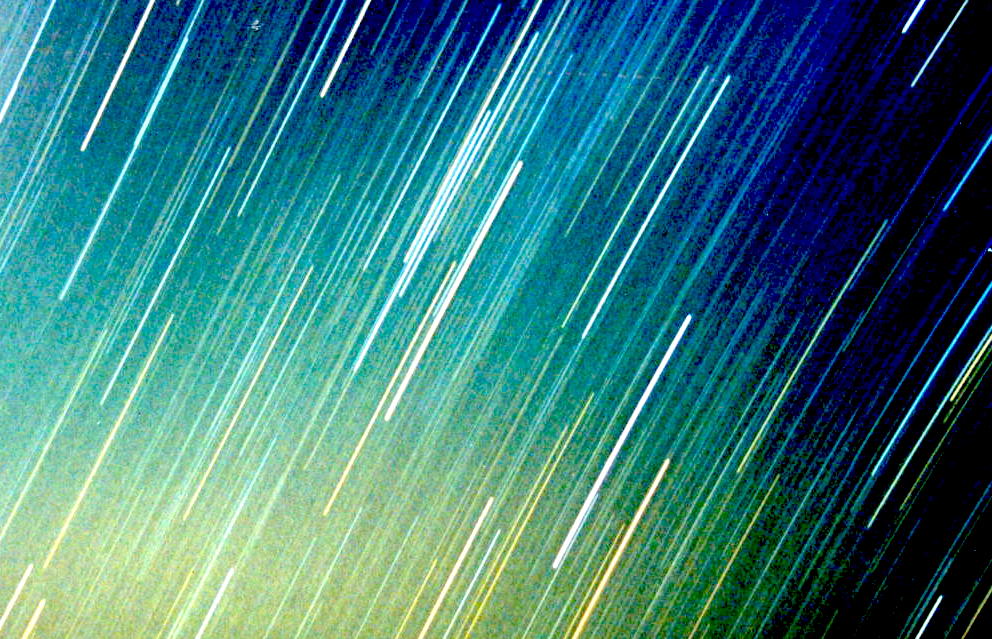Science
Related: About this forumThe Death of Astronomy?
The Death of Astronomy?
Probably not, but forthcoming commercial satellite constellations herald a new era for our night skies
By Caleb A. Scharf on May 27, 2019

Credit: European Southern Observatory
SpaceX's recent launch of 60 low-earth orbit satellites is just the start of a program to deploy thousands of relatively small, smart, and potentially disruptive devices for supplying broadband internet to many of the 3.8 billion humans currently lacking that utility. But astronomers have been quick to express concern about what these endlessly moving, sometimes bright constellations will do for anyone hoping to study or simply experience the night sky and the cosmos beyond.
What exactly is going on?
Several commercial entities are aiming to fill a huge gap in human data access (affecting about half our species' population) by launching a new generation of orbital broadband satellites. SpaceX is perhaps the most ambitious, with a final goal of some 12,000 'Starlink' satellites in different orbital 'shells', providing uninterrupted, high speed data to pretty much anywhere on the planet. But Amazon is not too far behind with its Project Kuiper and some 3,000 satellites, and others like OneWeb and what might eventually be 650 satellites.
Why so many satellites?
A few reasons are cost, coverage, and latency. In principle you could put up more geostationary satellites at 42,000 kilometer altitudes but these are hugely expensive, require highly directional, line-of-sight ground receivers and more powerful transmitters, and because of the finite speed of light there is an unavoidable time delay to each and every digital transaction. Alternatively, lots of low-orbit data-linked satellites can provide a dynamic 'dome-like' presence in the sky, more cheaply, and with much less time delay when some of them are not much more than a few hundred miles away from you at any moment.
What's bad for astronomy?
Short of being painted in Vantablack (which is not necessarily possible because of thermal regulation challenges in spacecraft) any artificial object will at times reflect sunlight down to the ground. This means that during portions of (early and late) night on Earth, overhead satellites hundreds of miles up can still be in daylight and appear as brilliant points of light streaking across the sky. For astronomers trying to capture deep exposure images or spectra of faint cosmic phenomena a bright satellite trail in the field of view can basically wreck the data. Other projects like the LSST plan on exploring the time domain of the cosmos - repeatedly imaging the sky night after night. Glinting, moving satellites get in the way of that. And for radio astronomy, which can seek to explore the universe in microwave bands, any satellite communications (often in similar if not overlapping frequencies) are yet another source of disastrous noise in an already noisy technosphere.
More:
https://blogs.scientificamerican.com/life-unbounded/the-death-of-astronomy/
PoindexterOglethorpe
(25,862 posts)much, maybe most observing these days is not done with regular visible light. Also, a lot of observing is done with space based telescopes, which I hope are higher up that the many new ones will be.
Radio telescopes tend to be located in places that are (at least so far) quite isolated from sources of radio waves that would interfere with their observations.
Judi Lynn
(160,545 posts)Great to be reminded of the newer, revolutionary methods in use now.
Completely mind-boggling.
Thanks.
LastDemocratInSC
(3,647 posts)And the latest earth based scopes are approaching the capabilities of those in space. These satellite constellations will definitely present problems in the future.
Thyla
(791 posts)But with the staggering amount of these things planned to go up this has got a lot of people spooked.
Plenty of people have a lot of money invested in imaging the night sky, myself included and if everyone of those subs is littered with satellites well people are already questioning their investment in the hobby/art.
For now you can manage the plane trails and satellites in the images as there are relatively few in your imaging run but if they put 10s of thousands of these up there then who knows?
It may not be a problem but lots of people are waiting to see how this ends up.
Frankly I'm staggered they even got permission for this but hey theat's the FCC making global decisions I guess.
The way I see it is unless the proposal is that you and I and everyone personally get free, high speed internet then it is not worth it. And of course nothing is ever free.
Bearware
(151 posts)It is well past the time for the Astronomical community to stop building large telescopes that will be sited on earth. More importantly it is probably time to stop building all large telescopes on earth. We should not only put telescopes in orbit but build them there along with robots to repair them when they have problems. What better place to build high precision telescopes than in a very high vacuum with micro-gravity, plenty of power and if there are any "waste" gases they will be flushed out by the solar wind. How large can we build a telescope mirror where the mirror itself is created and exists only within micro-gravity without the need to fit folded in a spacecraft or survive launch forces.
If we build and use telescopes only in space we could soon have much larger, lighter telescopes than you can build on earth and they can be used for observing 24x7 depending on orbits and objects being observed. A few years of this and we will have vastly more and much higher resolution data than has been gotten in all of human history.
progree
(10,909 posts)caraher
(6,278 posts)This raises deeper issues of the value of appearance of the night sky. Who gets to decide whether that changes, based on what principles?
I don't think the question is as simple as whether or not a cloud of low-level satellites will make it too technically difficult for astronomers to do science.